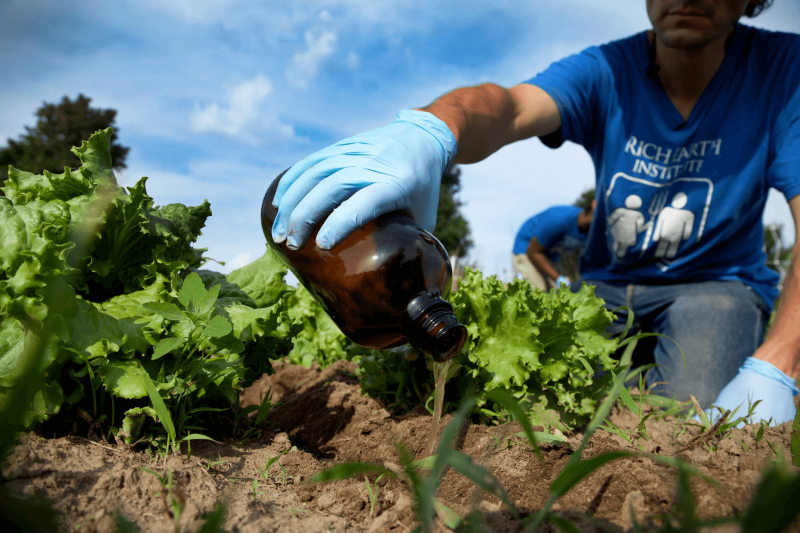In a bid to revive dying crops in Niger Republic, scientists are using a mineral-rich, low-cost and easily accessible fertilizer – human urine.
A team of researchers from Niger, the UK and Germany are combining Oga, sanitized urine, with organic manure to increase yield of pearl millet panicle, which is a robust, quick growing summer cereal.
The mixture was tested on farms from 2014 through 2016, showing a 30 percent increase in crops than compared to farms that did not fertilize with urine.
The only downfall, according to farmers using the new fertilizer, is the smell.
One farmer said in a video: ‘The only problem is the odor is not exactly good.
‘I always cover my nose whenever I apply urine and it is not a big problem,’ he continued while wrapping a scarf around his nose and mouth.
Niger, located in West Africa, has intense droughts due to climate change, which is resulting in dying crops and hungry people.
The issue is so extreme that in 2014 farmers had no choice but to use dangerous, black market pesticides, as nothing else was available.
However, science has stepped in to deliver a safe and affordable option.
Although the idea of using human urine to fertilize crops sounds disgusting, it has been used for thousands years due to its nutrients – phosphorus, nitrogen and potassium – that are the same found in commercial fertilizers.































